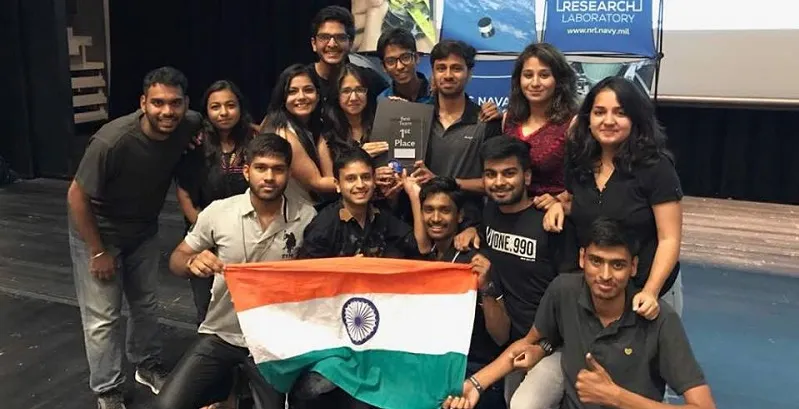Aviators of tomorrow: Students shine at the prestigious design-build-fly competition
Team Astral from the University of Petroleum and Energy Studies (UPES), Dehradun has secured the first rank globally at the recently held CanSat 2017.
CanSat is a prestigious annual design-build-fly competition with space related themes organised by the American Astronautical Society (AAS) and the American Institute of Aeronautics and Astronautics (AIAA).
With this feat, Team Astral has made its alma mater and country proud after competing with 40 teams from across the world. The competition was held in Texas, and the participants included Princeton University, University of Manchester, University of Alabama, VIT University, and National Aviation Academy.

Team Astral of UPES is a 23-member multi-domain team with students from Aerospace Engineering, Electronics Engineering, Computer Science Engineering, Material Science Engineering, Instrumentation and Control Engineering, and Design Studies. The team has been participating in CanSat competition since 2013 and in a short span of five years has reached the no. 1 ranking.
Talking about this achievement Ugur Guven, Professor, Aerospace Department (UPES) and Advisory Council Member at the UN Centre for Space Science and Space Technology Education in Asia Pacific said,
UPES students winning CanSat 2017 is a matter of great pride for us and the country as it signifies India’s importance in the future of space technology. It parallels the recent successes of the Indian space programme and prepares students for the role they will have to play when they eventually join the booming aerospace sector.
Team Astral has won CanSat 2017 under the guidance of Ugur Guven and Zozimus Labana and support from the School of Design Studies at UPES that helped them design and fabricate a payload with a re-entry container that simulates the process of a science probe travelling through a planetary atmosphere while collecting relevant data.
CanSat is an extremely rigorous competition and tests students’ analytical, creative, decision-making, problem-solving and collaborative skills besides their domain knowledge and expertise. CanSat also calls for the utilisation of unique skills from different disciplines which help to augment the multi-disciplinal skills of the contestants. The team has made significant improvement year after year to reach the no. 1 position and now aims to retain this rank next year. So far no team has been able to retain the no.1 rank for two consecutive years.
The CanSat Competition is a design-build-fly competition that provides teams from across the globe with an opportunity to experience the design life-cycle of an aerospace system. The competition is designed to reflect a typical programme on a small scale and includes all aspects of the preliminary design review to post-mission review. The mission and its requirements are planned to reflect various aspects of real-world missions including telemetry requirements, communications, and autonomous operations.
Each team is judged throughout the competition on real-world deliverables such as schedules, design review presentations, and demonstration flights. A team has to design and fabricate the mission statement provided by the competition and finally launch it at the competition site. Team Astral perfectly demonstrated the working of their CanSat system as per stated guidelines and were appreciated by the officials of AAS, AIAA, and NASA. NASA Jet Propulsion Laboratory (NASA JPL) is an annual sponsor of the competition and is involved in the evaluation process as well.
Do you have an interesting story to share? Please write to us at [email protected]. To stay updated with more positive news, please connect with us on Facebook and Twitter.







